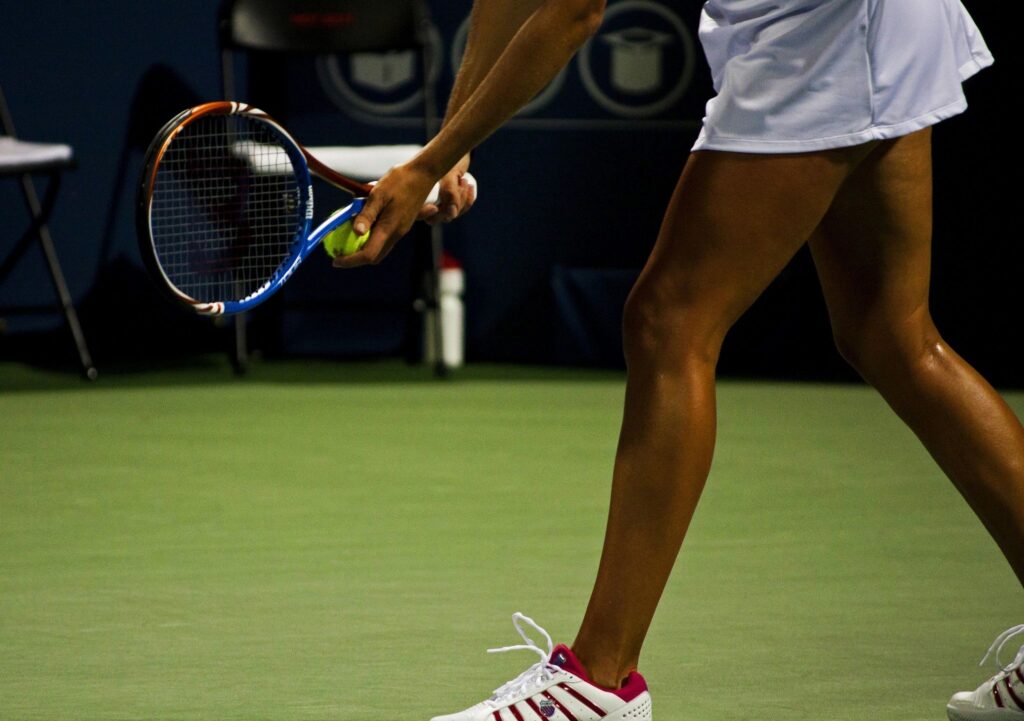
In mid-November Peng Shaui, the first Chinese professional tennis player to be ranked Number One in doubles, disappeared from public view after accusing a government official of sexual assault. In the weeks that followed, various international organizations and their leadership expressed concerns about her well-being.
On November 22nd, Shaui began to reappear on the Chinese internet and the Chinese government issued statements to assuage public worry about the athlete. Public concern continued and various tennis stars voiced their concern for her wellbeing.
By early December, the Women’s Tennis Association pulled out of China. Steve Simon, the chief executive of the WTA said in a statement:
“If powerful people can suppress the voices of women and sweep allegations of sexual assault under the rug, then the basis on which the WTA was founded — equality for women — would suffer an immense setback,” he added. “I will not and cannot let that happen to the WTA and its players.” The outpouring of support and solidarity shown to Shaui is admirable. Public comments on news stories about Shaui are also largely positive.
The United States said it was considering a diplomatic boycott of the 2020 Beijing Olympics, a decision it made official on December 7th. Australia followed suit. It remains unclear what the boycott will accomplish in terms of forcing change in China’s policies and practices.
Many are concerned about the tennis star’s safety but the motivations for speaking out in support of her vary. Some are motivated by solidarity with Shaui’s claims of sexual assault and align with the #me too Movement , which began in 2006 in the United States and now has global presence . Shaui’s accusations have given issues of sexual assault greater visibility in China filling the void created when the online forum Feminist Voices was banned on the Chinese internet. Others are using Shaui’s story to rally Americans to stand up to China, a country portrayed as America’s biggest rival, and according to some, greatest enemy. Other supporters see Shaui’s case just one more example of China’s human rights abuses, a larger situation that warrants immediate attention.
In addition to all these valid and important motivations, there’s also the fact that a person is missing. Yes, that person is a tennis star. Yes, that person is a Chinese national. But even if she were not, should the collective “we” be any less concerned about her wellbeing or what happened to her?
Shaui’s notoriety and status as a world-class athlete propelled and sustained her situation into the public eye. Shaui’s story is about experiencing abuse and being threatened by powerful institutions. There are millions of people who are not public figures, athletes or celebrities who are victimized in the same way but never receive national or international media coverage.
Fortunately, the public is aware of Shaui’s situation and is advocating for her wellbeing. But who’s advocating for the everyday citizens who are also victimized by the powerful? How many other Shaui’s are out there with no platform to tell their story?
Even though the internet and social media have made it possible for everyday citizens to share their views publicly, posts by everyday people are not likely to have the same impact as posts by celebrities.
When a celebrity or public figure adopts an issue, it is more likely to receive increased attention because they have hundreds of thousands or even millions of followers. There are a wide range of issues that celebrities advocate for: from AIDS, to Parkinson’s, to mental health to criminal justice reform, human rights issues, and refugee resettlement. Some argue that celebrities have a responsibility to bring attention to social issues and humanitarian causes.
Some question whether or not celebrities have the expertise necessary to offer advice or advocate for specific issues. Others are concerned that the public will give more credence to celebrity statements than to statements made by technical experts or researchers.
It’s not clear that celebrity advocacy and engagement brings about lasting change. Effective advocacy requires more than making people aware of an issue. Awareness must translate into action. Clicking “like” or sharing a post and doing little else does not bring about real, lasting change.
Even though their posts may not have the same reach or impact as those made by celebrities, citizens around the world can and should use social media to bring attention to issues they care about. Creating a social media profile is free and simple, and individual messages to lawmakers, public officials, and journalists can have an almost immediate impact.
The outpouring of support for Shuai is positive and encouraging. The responsibility to stand up and speak out for her, and cases like hers, is not something that can only be done by international organizations, world leaders, professional athletes or celebrities. Every person in our global society can choose to become an advocate for humanitarian issues.
The only way to create a better society is to embrace our collective responsibility to raise our voices and advocate for our fellow man and woman. It’s not a question of how big our social media platform is; it is a question of how deep our convictions run. We should not expect celebrities to do the work for us.
The individuals who are not famous but suffer injustice at the hands of the powerful, depend on each one of us – not celebrities – to bring attention to their cases.
